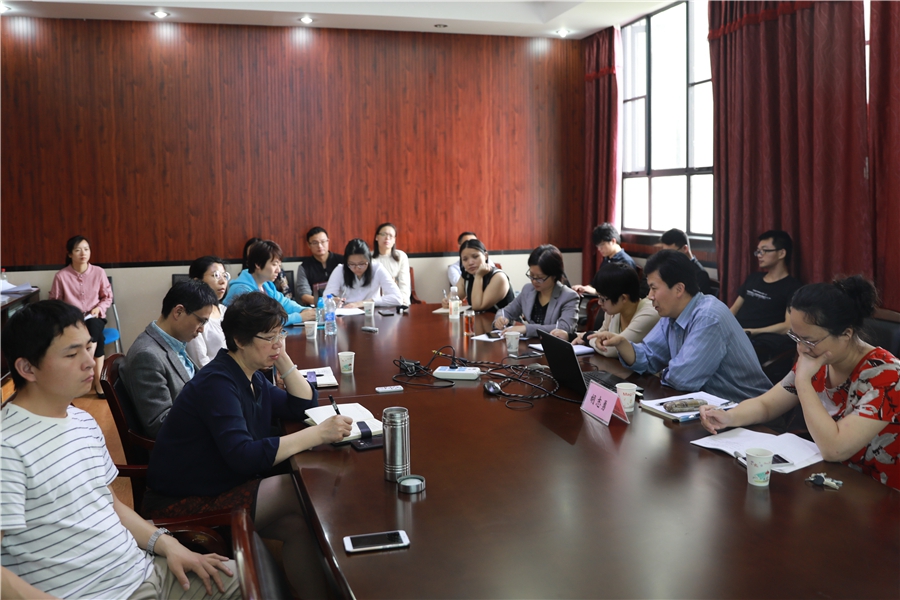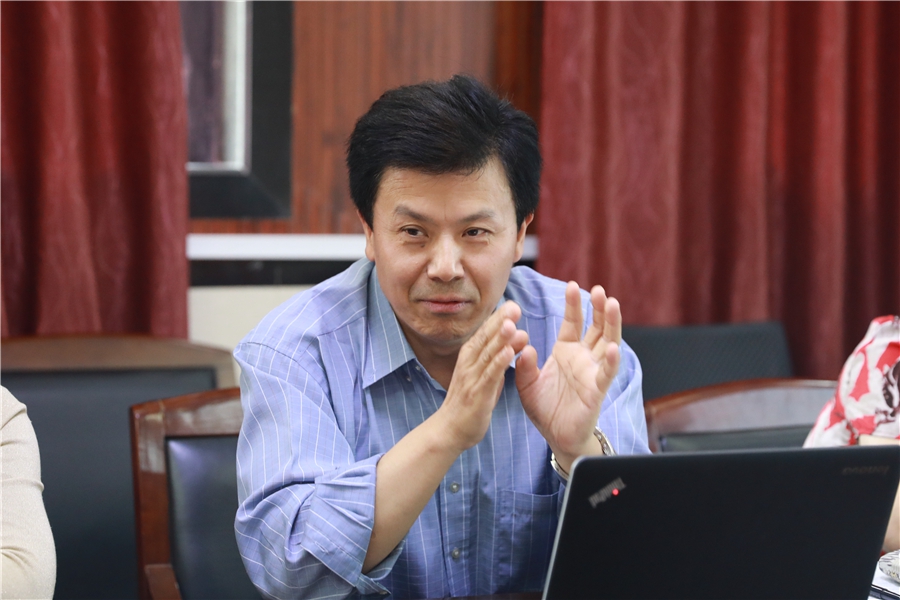On May 10th, Professor Hu Zhiyong, a researcher at the Institute of International Relations of the Shanghai Academy of Social Sciences and director of the Shanghai Institute for Maritime Strategies, visited Wuhan University China Institute of Boundary and Ocean Studies (CIBOS) and gave a speech entitled “India’s ‘Look East’ Policy and its Impact on the South China Sea”. Professor Xiong Ling, assistant of the dean, chaired the seminar. Some teachers and students of the CIBOS and the Wuhan University Institution for International Studies (IIS) participated in this seminar.

Prof. Hu mainly elaborated on India’s “Look East” policy, i.e. the evolution of India's " look east" strategy after the cold war, India's active upgrading of the " look east " policy, the cornerstone of " look east" policy: India's relationship with ASEAN, and the impact of the evolution of India's " look east " strategy.

(Prof. Hu Zhiyong)
Prof. Hu Zhiyong believed that India's " look east "policy aimed to maintain India's presence in the Pacific and expand eastward to actively participate in the matters involved in the South China Sea and the Pacific. India intended to make Southeast Asian countries the cornerstone of the" look east "policy through establishment of a multilateral cooperation mechanism to promote the development of relations between India and Southeast Asian countries in terms of economy, politics, and security. Considering economic, political and geo-strategic needs, India actively strived for showing its presence and raising its voice in the regional order.
In addition, Prof. Hu emphasized that the bright prospect of India's " look east "policy was fogged by factors such as the lack of comprehensive national strength, the immaturity of political diplomacy, and the shortage of motivation in the “Indo-Pacific” strategy among the United States, Japan, and Australia. Its effect was not so good as expectation in despite of the support of the United States. Even now, during the deepening phase of China's the Belt and Road initiative, there are still many obstacles to create channels for communication with India through the initiative, due to India's consideration of the northeastern separatist forces, its “protection” for Nepal's economy, as well as Bangladesh's inability to help.
(Rewritten by Jin Yu)
(Edited by Fu Shanshan)
